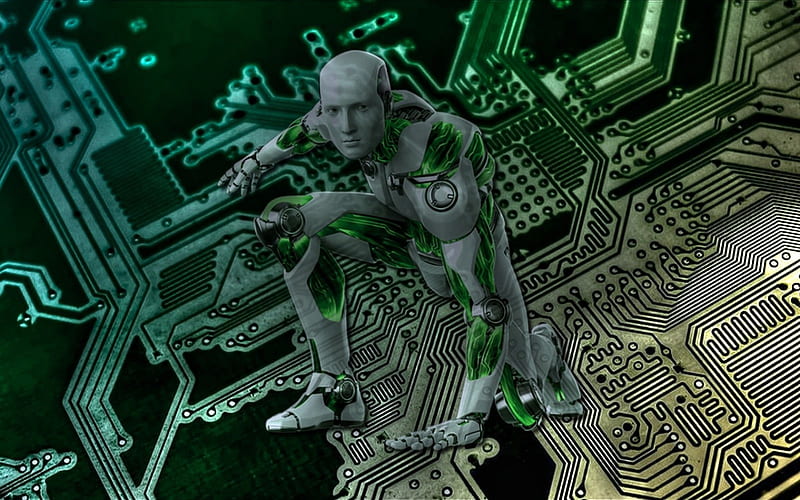A very interesting thing to note is that there is always some bit of difficulty somewhere, and this is good news because difficulty equals freedom!
We don’t generally realise that ‘difficulty equals freedom’ of course and what this means that we run away from it rather than being interested in it – we actually spend most of our time running away from difficulty, one way or another. Even when we do embrace some form of challenge, some form of task, it is often in order to facilitate ourselves in ignoring some bigger challenge, some bigger difficulty. When a particular ‘smaller difficulty’ comes along that can offer us the chance of escaping from the bigger one (one we don’t want to think about) then – surprise, surprise – this minor difficulty suddenly becomes very attractive to us! This is the phenomenon of ‘pseudo-solution’ – we’re solving the wrong problem and then allowing ourselves to feel good about this, as if what we’re doing isn’t a mere displacement…
A life with no difficulty is a life with no freedom in it, and yet we each have a type of ‘autopilot’ within us that navigates us unfailingly towards this imaginary realm of Zero Difficulty. This imaginary realm calls to us like a siren (the mythological sort, that is) and we are – for the most part – powerless to resist it. We are being drawn towards our certain ruin on a treacherous reef. Our conception of the state of Zero Challenge is completely contrary to the actual reality of it therefore – we see it as ‘the end of all our problems’ when the truth of the matter is that it is nothing other than pure undiluted misery! We think it’s going to be a sweet-smelling bed of roses but it’s actually a tangled mass of briars and nettles. We’ve got it completely backwards, in other words.
In our imagination it is possible to have a world without any difficulty in it, but in practice this never turns out to be the case. We might sometimes think that we have hit the jackpot and that we are never going to have any more major problems to contend with again this but this – as experience shows – is only ever a momentary illusion. There is now at any end to life’s problems and when we engineer a situation for ourselves in which there seems to be no more major difficulties or problems for us to face this turns out to be a very big problem in in itself. When we get too clever for our own good and engineer a situation where we ‘never have to do what we don’t want to do again’, and only have to do the type of things we like doing, enjoy doing, then we find that no longer like doing these things, we find that we don’t enjoy them anymore.
Who hasn’t had experience of this sort of thing? Life is no longer life when it gets to safe; it becomes a form of suspended animation – a strange blank space in which we are always waiting for something to happen, always waiting for life to happen. When we are stuck in a logical continuum of thought this is exactly what happens therefore – we find ourselves in the position of either waiting for the good thing to happen, or waiting for the bad thing to happen, and both of these are ‘a substitute for life’. Either of these is as unsatisfactory as the other; we’re not living either way – we’re just playing ‘the waiting game’.
When we judge things, when we evaluate the world around us, what is happening to us, as being either ‘this or that’, then we are doing the same thing – we’re jumping to conclusions and this means that we are no longer living life but only our ideas about it, and this is a ‘redundant operation’. Life has become a closed book to us. We all think that it is good to have opinions, and we love telling people about them (if we can get them to listen) but all it doing avoiding uncertainty, all we’re doing is ‘playing it safe’. The ‘difficulty’ here is the difficulty of uncertainty – uncertainty is a challenge because we have to stay open to possibilities that we have not up to snow thought of (we can’t just cruise along on autopilot, in other words). We’re stuck in the ‘dehydrated land’ of our own arid conceptualizations.
A life with no difficulty in it is a life with no freedom in it; there’s only the illusion of freedom. ‘Reality is work’, according to J.G. Bennett, and so when we opt not to work we also opt out of reality. We think we are going to get somewhere, we think we’re going to get things ‘sorted out’, but this is not the case. We’re actually running away from reality, and so are prospects of ‘getting anywhere’ (or solving anything in a meaningful way) aren’t just minimal, they are zero. We aren’t solving a problem, we are making big. Running away from difficulty isn’t to get further away from it, as we might naïvely suppose, but rather it is to bog ourselves down in it permanently. It’s the exact opposite of what we want, therefore.
All that happens when we engineer a situation for ourselves that contains zero difficulty is that we make the nature of our predicament invisible to us; we can’t see the difficulty’ that is there directly, but it will still impinge on us all the same in indirect ways. What’s more, these indirect ways tend to become more and more pressing, and tell in the end we can’t help noticing them. The indirect difficulty’ manifests itself in terms of what is generally called negativity’ – I negativity’ is what happens in response to things happening that we don’t want to happen’. When things happen that we don’t want to happen, then this constitutes and this is our new difficulty’. Because we have insisted on having our own way, and have made this into an unquestionable rule, has invented a whole new type of suffering. What we reject we’re stuck with.
When things happen ‘against our will’ this isn’t really a difficulty of course; it’s only a hardship to us because we make it so. When we withdraw from reality then anything that conflicts with our wishes, or our expectations, or our beliefs, becomes a new manifestation of difficulty for us (even if it is – ultimately – only an imaginary one). When things conflict with our wishes then this might be termed a ‘second-order manifestation of difficulty’ – it’s not the difficulty that comes with ‘relating honestly to reality’ but the difficulty that comes from ‘keeping reality out’! This second-order type of difficulty is not one that we can work with (or ‘accept’); rather, it’s a type of difficulty that we can only react automatically against. The ability to react isn’t strength (‘strength’ being the capacity that allows us to relate honestly to the difficulty) but rather it is fear which is (of course) ‘us running away from reality’.
The absolute need to get away from difficulty is fear, and when we create for ourselves a world that is characterised by ‘Zero Difficulty’ then fear becomes our will; we have ‘reinvented’ ourselves in a new modality, so to speak, only we are operating on the basis of fear rather than strength. This reinvention of ourselves as beings that are ‘running on fear’ without knowing it is the price we have to pay if we want to live in this imaginary world of Zero Challenge (or Zero Difficulty). And yet we haven’t gotten rid of all challenges after all, we have simply created a new order of challenge that we need to deal with. We have created an ‘analogue’ of what we are running away from, a ‘surrogate version’, so to speak. This is of course what always happens when we turn our back on the ‘big existential challenge’ of life – we get plagued by all these petty, wretched, inconsequential problems that don’t really have anything to do with anything. They come out of the woodwork to make our lives miserable, and this type of unending ‘meaningless suffering’ is what the neurotic withdrawal from life is all about.
So – is to recapitulate what we are saying here – we create a new and petty world in order to escape the existential challenge of the ‘big’ (or open) world, and although we have successfully managed to do so, we haven’t really gained anything by the manoeuvre because we now have a situation where we are just as troubled by the ‘petty concerns’ as we were by the ‘big one’ of life itself! Our attempt to escape the original difficulty hasn’t worked out so well after all, therefore; we can retreat and retreat but we’ll never get to a place where we can get away from our troubles. We incur more suffering not less as a result of our manoeuvre – we create a whole new type of suffering, which is of the unconscious variety.
But to go back to what we started off by saying, the fact that no matter how much we invest in avoiding the big ‘existential challenge’ we’re still going to be contending with difficulties (which, relative to what we are pragmatically able to bear, is every bit as challenging to us as the challenge that we originally ran away from) is actually a blessing, not a curse! It’s a blessing not a curse because our freedom lies in these ‘difficulties that we can’t avoid’, not anywhere else (i.e. not in running away from them). We automatically think that our freedom lies in the absence of difficulty, the absence of challenges. When we get rid of all our problems, then we will be free, we think, and this is of course what we are aiming at the whole time – we’re aiming at ‘safety’, aiming at ‘security’. We’re aiming at what we implicitly see as ‘winning at the game’.
So the point is (as we have been saying) that we have got everything exactly backwards; we got it all backwards and in a very stubborn way too – we have got it all backwards and we’re not going to let anyone talk us out of our delusion! No matter how safe we play it we are always going to come across problems that we can’t fix (even though we feel that it is supremely important that we do so) and this is a good thing. In order to appreciate why this is a good thing we just need to remember what we said earlier on about ‘fear becoming our will’; when we are completely orientated towards running away from difficulty then the purely deterministic (or mechanical) motivation of fear gets to be seen as (and experienced as) our own free will. But it isn’t our will – it’s just fear.
Fear wants to ‘solve problems’ – it wants to quickly solve whatever problems come along, and then just as quickly forget about them! We see this kind of thing in a very positive light, naturally, but from a psychological point of view the helpful thing is to pay careful attention to our relationship with the problem that we want to get rid of, and this of course is going completely against the grain. If we did take an interest in what’s really going on then we would discover that we don’t have any free will with regard to not running away from (or trying to fix) a problem, and that our ability not to be aggressive towards the difficulty is frankly non-existent. Aggression is all we know, either directed outwards at the world or inwards at ourselves. Seeing that what we call our ‘free will’ is only the ‘external motivator’ of fear, and that our genuine volition, our genuine strength has yet to come into existence, is the first essential step therefore.
When we talk about ‘problems’ from a psychological point of view what we’re really talking about is mental pain or discomfort, which ultimately arises from our absolute resistance to seeing the ‘bigger picture’. We have a problem with mental pain because our orientation (when we are in the state of unconsciousness) is simply to get rid of it and not look any further into the matter, as we have just said. When pain or discomfort comes along that we can’t solve or eliminate (the suffering of neurosis for example) then we have put in ourselves in a position where we have to ‘come up with something else’, as regards our response. We’re cornered, we have no choice. As Jung says, we are only going to grow or change when our back is against the wall, and we can’t retreat any more. So out of the apparent curse of neurotic suffering comes a benefit – we come back to ourselves, even though we didn’t know that we were lost.
All this comes down to one thing – when we are orientated towards running away from difficulty, and therefore are possessed by fear as if it were our true volition, then we lose ourselves completely. Through running we lose ourselves. Through automatically fixing (or rather trying to fix) every difficulty we come across we lose ourselves. We identify with the running, we identify with the fixing, but that isn’t who we are! ‘Who we are’ is being, not ‘runaway doing’ or ‘runaway fixing’. Doing can serve being, but being can’t serve doing – that’s the wrong way around. It’s only when we don’t (or can’t) run away anymore that we gain the ‘ability to be’, and without the ‘ability to be’ there is no possibility of freedom. There’s no freedom in fear, after all! There’s no freedom in running away, and yet at the same time we can never really run away from freedom…






